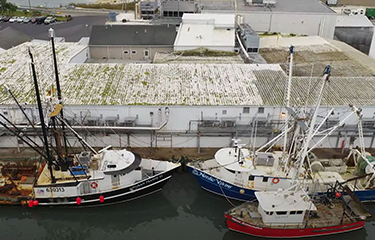US Supreme Court takes up New Jersey fishermen’s at-sea monitoring challenge

The U.S. Supreme Court will take up a challenge to federal regulations requiring Atlantic herring fishermen to pay for at-sea monitors out of pocket, the court announced 1 May, 2023.
The lawsuit was brought by fishermen from the U.S. state of New Jersey in response to a rule adopted the New England Fishery Management Council (NEFMC) in 2020, which required some fishermen to carry and pay for at-sea monitors on their vessels. While the government argued the monitors were necessary to collect data for the government and ensure adherence to regulations, some fishermen argued that paying for at-sea monitors, which could cost up to USD 700 (EUR 638) per day, was financially crippling for their businesses.
Nonprofit legal group Cause of Action Instute and former Solicitor General Paul Clement responded by filing suit on behalf of several fishermen. However, neither the Washington D.C. Federal District Court nor the Washington D.C. Federal Circuit Court agreed with the plaintiffs, siding instead with U.S. regulators. A similar case filed by New Hampshire fishermen in 2015 lost on a technicality.
Now the fishermen will get one more shot.
On 1 May, the U.S. Supreme Court granted the fishermen’s petition and will take up Loper Bright Enterprises v. Raimondo. U.S. Supreme Court Justice Ketanji Brown Jackson, who was on the panel of judges who heard arguments when the case was presented before the U.S. Court of Appeals for the District of Columbia Circuit, did not take part in that decision.
“We are grateful to the Supreme Court for taking our case. Our way of life is in the hands of these justices, and we hope they will keep our families and our community in mind as they weigh their decision,” said Bill Bright, one of the plaintiffs in the case.
The case could have ramifications for regulators across the U.S. regardless of industry, as the Supreme Court specified that it was only considering the lawsuit’s challenge to the “Chevron deference,” a court precedent allowing regulatory agencies to take on lawmaking authority on behalf of Congress. The at-sea monitor order was implemented by the New England fishery Management Council; It was never directly approved by legislators.
“The Supreme Court has an opportunity to correct one of the most-consequential judicial errors in a generation. Chevron deference has proven corrosive to the American system of checks and balances and directly contributed to an unaccountable executive branch, overbearing bureaucracy, and runaway regulation,” Cause of Action Institute counsel Ryan Mulvey said.
A total of 38 organizations and individuals have filed amicus briefs on behalf of the fishermen, with 18 state attorneys general voicing their support.
“We are delighted that the court took this case not only to potentially deliver justice to these fishermen, but also to reconsider a doctrine that has enabled the widespread expansion of unchecked executive authority. We look forward to our day in court,” Clement said.
Photo courtesy of Cause of Action Institute





Share